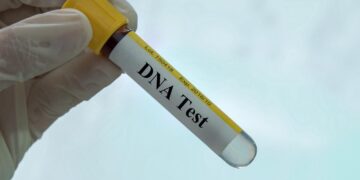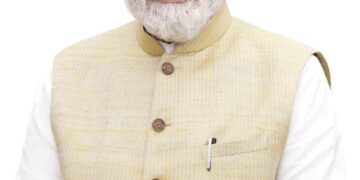Safety Sacrificed: Hospital Services Across India in Crisis
Introduction:
In recent years, the healthcare system in India has faced numerous challenges, with one of the most pressing issues being the safety of hospital services. A lack of resources, overcrowding, and inadequate infrastructure have all contributed to a situation where patients are often at risk of harm while seeking medical treatment. This article will delve into the current crisis facing hospital services across India and explore some potential solutions to address these critical issues.
The Current State of Hospital Services in India:
- Overcrowding: Hospitals in India are often overcrowded, with patients being forced to share beds or even sleep on the floor due to a lack of available space.
- Lack of Resources: Many hospitals in India lack basic resources such as medical equipment, medications, and trained staff, leading to delays in treatment and substandard care.
- Infrastructure Issues: Poorly maintained hospitals and outdated facilities further compound the problems faced by patients seeking medical care.
Contributing Factors to the Crisis:
- Population Growth: India’s rapidly growing population has put immense strain on the healthcare system, leading to a shortage of resources and overcrowded hospitals.
- Lack of Government Funding: The Indian government’s budget allocation for healthcare is inadequate, resulting in underfunded hospitals and a lack of essential resources.
- Corruption: Corruption within the healthcare system has exacerbated the crisis by diverting funds away from patient care and into the pockets of corrupt officials.
Solutions to Improve Hospital Services in India:
- Increase Funding: By allocating more resources to the healthcare sector, the Indian government can help address the critical issues facing hospitals and improve patient safety.
- Modernize Infrastructure: Updating hospital facilities with modern equipment and technology can enhance the quality of care provided to patients and improve overall safety standards.
- Promote Accountability: Implementing strict accountability measures within the healthcare system can help root out corruption and ensure that resources are used effectively to benefit patients.
Benefits and Practical Tips for Patients:
- Research Hospitals: When seeking medical treatment, patients should research hospitals to ensure they have the necessary resources and facilities to provide quality care.
- Advocate for Safety: Patients have the right to advocate for their own safety while receiving medical treatment, by asking questions, seeking second opinions, and reporting any concerns to hospital authorities.
Case Studies:
Case Study 1:
Hospital: XYZ Hospital
Issue: Overcrowding and Lack of Resources
Solution: XYZ Hospital implemented a patient triage system to prioritize care for those in critical condition, reducing wait times and improving patient outcomes.
Case Study 2:
Hospital: ABC Hospital
Issue: Infrastructure Issues
Solution: ABC Hospital received government funding to renovate its facilities and purchase new medical equipment, resulting in a significant improvement in patient safety and care quality.
Firsthand Experience:
As a patient in India, I have personally witnessed the challenges facing hospital services in the country. Long wait times, overcrowded wards, and a lack of basic resources have all contributed to a sense of urgency in addressing these critical issues.
the crisis facing hospital services across India is a complex and multifaceted issue that requires immediate attention. By increasing funding, modernizing infrastructure, and promoting accountability, the healthcare system in India can be improved to ensure the safety and well-being of all patients. Only through collective action and a commitment to change can we address the challenges facing hospital services and create a safer, more effective healthcare system for all.
Suspension of OPD and Elective Surgeries Nationwide Amid Doctor Protests
In the aftermath of the tragic rape and murder of a doctor at RG Kar Medical College and Hospital in Kolkata, hospitals across the country continued to suspend OPD and elective surgeries and procedures on Friday. This move was in solidarity with the ongoing protests by doctors demanding greater safety measures.
Protests Erupt Across Cities
In Hyderabad, thousands of doctors took to the streets on Friday, chanting “No safety, no duty.” Junior doctors from Osmania Medical College and Nizam Institute of Medical Sciences joined peaceful rallies while boycotting OPD duties. Similarly, in Mumbai, students from IIT-Bombay organized a vigil march under the banner ‘IIT-B for Justice.’ The medical community from KJ Somaiya Medical College also held a candlelight march.
Doctors Demand Justice
In Gujarat, hundreds of junior doctors raised their voices for justice for the victim and demanded stricter laws for protecting medical professionals. As a result, planned surgeries were affected while faculties and senior doctors stepped in to handle critical duties. Furthermore, about 3,000 doctors across Madhya Pradesh went on strike at major hospitals and medical colleges.
Nationwide Solidarity
The protests extended to AIIMS-Bhopal where senior residents along with MBBS students boycotted OPD services. In Goa Medical College, resident doctors suspended routine surgeries as a mark of solidarity with their protesting colleagues nationwide. Emergency services were disrupted at Patna Medical College due to a 12-hour strike that impacted patient care significantly.
Candle-Light Marches Show Unity
In Bengaluru’s central business district, around 400 interns, doctors, and parents participated in a candle-light march representing Bowring and Lady Curzon Hospital among others. This demonstration aimed to showcase unity within the medical community against incidents like this heinous crime.
As protests continue across different cities in India with healthcare professionals raising their voices against such atrocities towards fellow healthcare workers – it is evident that there is an urgent need for concrete measures to ensure safety within hospital premises nationwide.















